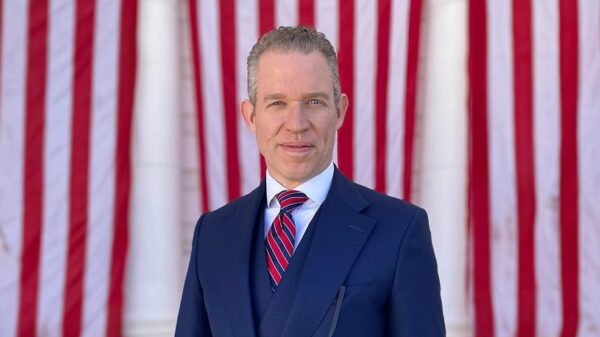By Beth Clayton
Alabama Political Reporter
MONTGOMERY–The River Region Republicans met earlier this week to discuss the impact of changes to campaign finance laws and the need for true Conservative leadership for Alabama.
Under the new changes to Alabama’s campaign finance law, corporations can now make unlimited contributions to political candidates in Alabama races. Previously, the limit was $500.
“We’ve turned it over to the corporate dollar. Your Republican legislature gave you that, and it was signed by your Republican governor. I have some real problems with that,” said former state Senator John Rice, the leader of the River Region Republicans.
“I’m not a BCA-type. I’m a NFIB type,” Rice said.
Over the past session, many people on both sides of the aisle have pointed out a split in the Republican party between those aligned with the Business Council of Alabama and those aligned with the Tea Party and grassroots Conservative organizing.
During the meeting, the group took a vote by secret ballot to see who everyone believed was their “true Conservative elected leader” for Alabama.
The group struggled to name a Conservative leader “to set the standard that all other elected officials are expected to live up to.”
The first place response for the “true conservative leader” was Senator Jeff Sessions, followed by “no one” in second place. Governor Robert Bentley tied with Senator Dick Brewbaker (R-Montgomery), Senator Paul Bussman (R-Cullman) and Senator Cam Ward (R-Alabaster) were also mentioned.
The group discussed that they felt that Speaker of the House Mike Hubbard (R-Auburn) and Senate Pro Tem Del Marsh were looking out for BCA more than the average Alabama voter.
“People can go around bragging about having a Conservative legislature all they want, but I haven’t seen it be so Conservative,” Rice said, adding that he thinks the motivation behind lifting corporate contribution limits may be to “turn the whole state over to the BCA.”
“They’re protecting incumbents,” Rice said, turning the discussion to Bob Riley’s Alabama 2014 PAC and Hubbard’s Storming the Statehouse PAC.
Party leaders are even telling candidates they’ll be “thrown off the ticket” if they take money from AEA, Rice said.
“They’re protecting incumbents with the 2014 money that’s raised outside of the party. They’re telling other people that want to be legitimate candidates that they can’t raise money anywhere else because the only other people who have money are Forestry, BCA, ALFA, nursing homes and AEA,” Rice said. “Nobody else has got any money except big corporations. If you want to be a legitimate contender in the primary, you either kiss the feet of the people that control the big checkbook at the 2014 fund or you don’t raise money,” he said.
Many people in the room agreed that this law made them feel “powerless” to impact the political process.
The group discussed the potential impact of this law for candidates who want to “buy” a race, including the difficulty of competing with a candidate capable of buying enormous amounts of airtime and advertising space before an election.
“I think we’re treading on thin ice,” Rice said.
As of 2012, the National Conference of State Legislatures reported that only four states have unlimited campaign contributions: Missouri, Utah, Oregon and Virginia. As of 2012, 21 states prohibit corporate campaign contributions all together and 17 states treat corporate contributions the same as individual contributions.
The change in the law is effective August 1. In addition to lifting the corporate contribution limit, it also changes the way that PACs are able to interact and ultimately lifted the ban on PAC-to-PAC contributions.





















































